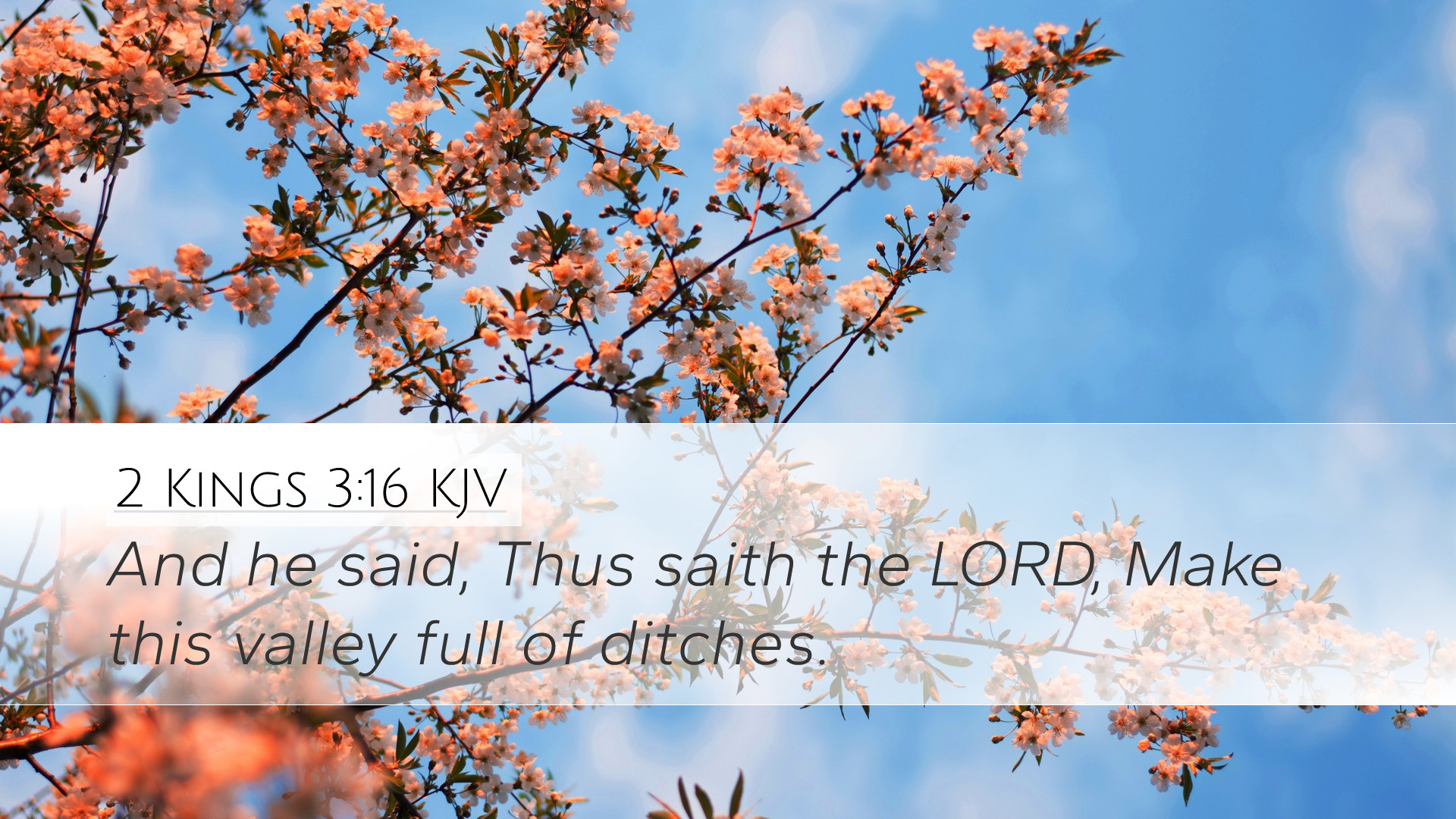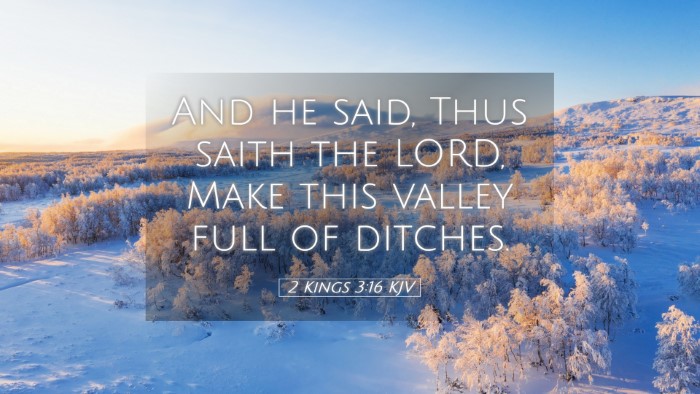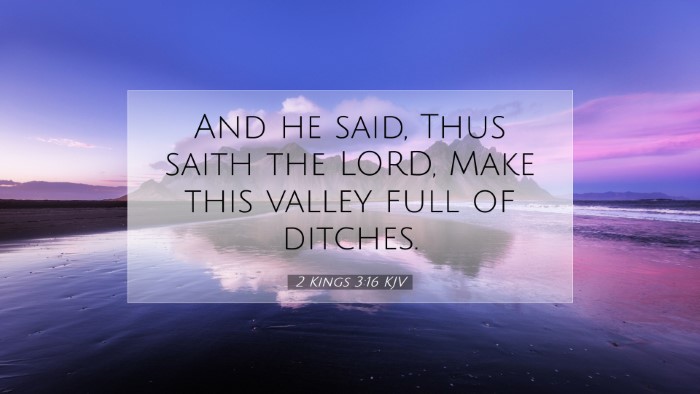Commentary on 2 Kings 3:16
2 Kings 3:16 states, "And he said, Thus saith the LORD, Make this valley full of ditches." This verse encapsulates an important moment in the narrative of the kings of Israel and highlights the themes of prophetic guidance and divine provision.
Contextual Background
This passage occurs during a military campaign involving Jehoram (King of Israel), Jehoshaphat (King of Judah), and the King of Edom against Moab. The Israelites, having insufficient water supplies, sought the counsel of Elisha, the prophet of the Lord. Historical context suggests that these kings had turned away from the Lord and thus required prophetic intervention to receive guidance and assistance in their dire situation.
Interpretive Insights
The command to “make this valley full of ditches” is both practical and symbolic. It carries theological significance, implying that God’s provision often requires human participation and action.
Divine Instruction and Human Action
According to Matthew Henry's Commentary, this command emphasizes that God expects His followers to prepare themselves for His blessings. The filling of the valley with ditches symbolizes the readiness to receive what God promises. God's commands may seem illogical or impractical, yet they require faith in His word and wisdom. The act of digging ditches demonstrates the need for concerted effort and preparation on the part of the people.
Theological Reflection
Albert Barnes suggests that the emphasis on "this valley" indicates a specific place where God's intervention was to occur, highlighting His providential control over geography and circumstances. The direction to dig ditches signifies a divine blueprint for meeting needs through seemingly mundane tasks. It encourages believers to engage actively with what God is doing and to be instrumental in the manifestation of His power.
Symbolism of Ditches
The ditches themselves can be seen as symbols of faith, indicating the willingness to receive God’s blessings. Adam Clarke notes that the act of digging beyond the visible circumstances (the dry valley) embodies a faith that anticipates divine providence. This reflects the Christian call to live by faith, often doing the work before the outcome is visible.
Applications for Pastors and Theologians
This verse serves as a potent reminder of the cooperation required between divine initiative and human responsibility. Pastors and theologians can explore several applications from this passage:
- Preparation for Blessings: Leaders must encourage congregations to prepare their hearts and lives for what God intends to do. This might include prayer, fasting, and communal actions aimed at spiritual readiness.
- Faith in Action: This passage challenges believers to live in anticipation of God's provision and to actively participate in His plans, even when such participation might seem unconventional or daunting.
- Understanding Divine Timing: The Lord's instruction came when the people were desperate. This highlights the timing of God's interventions—often just when we feel we cannot go on, God prompts us toward action that leads to deliverance.
- Community Effort: The effort to dig ditches could be seen as a collective task. It underscores the importance of collaboration in church ministries where members come together in faith to prepare for God’s work among them.
Conclusion
2 Kings 3:16 serves not only as a historical narrative but also as a powerful lesson for faith and preparedness. The call to fill the valley with ditches reflects the necessity of action in alignment with God’s directives. As believers navigate their spiritual journeys, this verse remains a timeless reminder that God’s provision often follows our diligent, faith-filled actions.
In exploring this text further, scholars and students can engage deeply with themes of prophetic ministry, divine intervention, and the human response to God’s invitations. It encourages all to be proactive in faith, firmly rooted in the knowledge that while God provides, His blessings often await our faithful preparation.


